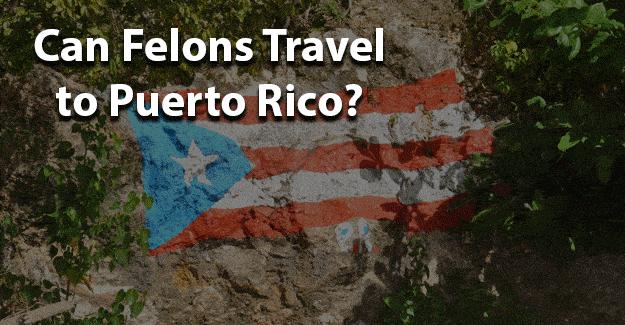After release from prison and completing their terms of probation, felons are of course allowed to travel freely throughout the U.S. Such is not the case when wanting to travel beyond this country’s borders.
This blog post will cover whether felons are allowed to travel to Puerto Rico.
- Puerto Rico as a Territory
- Traveling to a U.S. Territory
- Avoiding Crime
- Supporting Felons Visiting Puerto Rico
Contents
Puerto Rico as a Territory
Previous blog posts have covered the question of whether felons can travel to foreign countries, such as Canada and Jamaica. The first thought might be that Puerto Rico is similar.
It isn’t, however, because Puerto Rico is not a separate, independent country but rather is a territory of the U.S.
A U.S. held territory is much like a colony was in earlier historical times.
It is a land which is an “administrative division” directly overseen by the federal government. It is self-governing with locally elected governors and territorial legislatures.
The citizens of Puerto Rico are U.S. citizens with local voting rights (they may not vote in a Presidential election), pay U.S. taxes, and have an elected member of the House of Representatives (who may vote in committees but not on the floor).
Puerto Rico has been a territory since the end of the Spanish-American War in 1898.
Traveling to a U.S. Territory
For Americans entering Puerto Rico, it is just the same as traveling from one state to another. Therefore, a passport is not required to enter Puerto Rico.
This is also true for felons who travel from the U.S. mainland directly to any U.S. territory.
All they must carry with them is a government-issued ID, such as a driver’s license. There is no visa required as is the case when visiting a foreign country.
If you’re in a hurry to get your visa or want someone to walk you through the process, I recommend you use this website to help.
Since Puerto Rico is not connected to the U.S. mainland, there are a couple of transportation options.
One is flying on an airlines from the U.S. As long as the flight is a direct one from a U.S. city, no passport is necessary.
This is also true for the return flight as long as it does not touch down in another country either as a connection city or due to an emergency.
When landing at a foreign airport, a passport will often be asked for. So it is important for felons to carry a valid passport. An earlier blog post indicated that felons can obtain a passport.
The other route to Puerto Rico is by ship. Approximately one million people travel there on a cruise each year. A previous blog post verified felons are able to go on a cruise.
As long as it is a closed loop cruise, there is technically no passport required. A closed loop cruise is one which starts from and ends up in the same U.S. port city.
Many cruises will actually stop at ports in different countries. This is often true for Caribbean cruises.
At most such stops, officials will ask to see a passport for all passengers, even those who do not get off the ship there. So having a passport is wise.
To not have one could result in being detained in that country, which could pose a major problem for felons. They might not be able to complete the cruise and be held in that country.
Avoiding Crime
For those who have traveled to Puerto Rico, it can be a wonderful place to visit. The Spanish setting and culture are major tourist attractions.
For all tourists, it is important to be careful while visiting because of crime there. There is a lot of drug related activity and theft. For felons this is important to be aware of.
Since there is a high crime rate, police are on the lookout for suspicious activity.
When visiting Puerto Rico, felons should be especially careful to obey the law and not engage in actions that might draw the attention of local authorities. This could result in being picked up and held.
At that point, it could be easy to look into their criminal history, requiring legal counsel to deal with any problems.
Supporting Felons Visiting Puerto Rico
Families of felons who visit Puerto Rico can be helpful to their loved one by encouraging them to travel in order to relax. Be supportive of their making the trip.
It is important to remind them that as a tourist, just being there will bring them under scrutiny.
Remind them of their commitment to live an honest life and how legal difficulties while in Puerto Rico will only defeat their efforts to live that life and may result in their returning to prison.
So what do you think about this blog post about whether felons can travel to Puerto Rico? Have you or someone you know traveled to Puerto Rico after a felony conviction? What was that experience like? Please tell us in the comments below.


